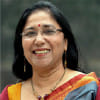International Women’s Day: Recognising their invaluable role in society

This year, the theme of International women's Day is "Women in Leadership: Achieving an Equal Future for Covid-19 World". As we celebrate the day, our thoughts are with the millions of people afflicted with the contagion Covid-19, the precious lives lost and livelihoods destroyed. The pandemic demonstrated once again the role women play during crisis situations in taking on extra work burden, caring for the family, persevering against all odds and providing the leadership that sustain families, yet remain unrecognised and undervalued.
In Bangladesh, the struggle for gender equality has been long and arduous. The political, social and economic progress women have achieved in the last 20 years is in stark contrast to the high number of violence and abuse they suffer, both within families and outside. During lockdown, women faced increased domestic violence demonstrating the unequal power relations and their low status within families. Household chores including productive activities are not valued either by society or families and unpaid care work does not count in national statistics. The undervaluation of their work at home is reflected in the now famous poster of Banchte Shekha depicting a woman with 12 hands doing multiple tasks yet a statement below says "my wife does not work".
Recognition of unpaid care work is receiving global attention and is specifically mentioned in SDG Goal 5 target 5.4 stating: "Recognise and value unpaid care and domestic work through the provision of public services, infrastructure and social protection policies and the promotion of shared responsibility within the household and the family as nationally appropriate". However, there is not much action at state level for the implementation or attainment of this target.
Recently, in a landmark ruling, a Beijing divorce court ordered a man to compensate his wife for the housework she did during their marriage. The woman will receive USD 7,000 for five years of unpaid labour plus a monthly alimony. The ruling comes after China's introduction of a new civil code under which a spouse is entitled to seek compensation in a divorce if she has taken extra load of household work, caring for children, elderly, etc. The woman argued that her husband did not share any household or child care responsibility. Although the amount of compensation is being debated, this ruling has created a precedent on the possibility of seeking legal recourse for recognition and compensation for unpaid care work.
The case has generated a huge debate all over the world including Bangladesh. Social media is full of comments on the merits and demerits of the ruling. Those in favour find the compensation amount too little while those not in favour are ridiculing it as another stunt from feminists to force husbands to pay for work which is the duty of every woman. Women are ascribed specific gender roles to which they must conform. Household work, caring for children, the elderly and sick comes within these gender defined roles. Ironically, these are not considered "work" but "duties" which every woman, whether she works outside the home or not, is expected to perform.
According to an OECD survey, Chinese women perform 2.5 times more work than men while women in the OECD countries perform twice more housework than men. In Bangladesh, attempts have been made to determine the valuation of women's unpaid care work and give it formal recognition. One suggestion is to monetise and include it in the national GDP. However, this has been met with resistance due to the System of National Accounts (SNA) which does not allow non-market products to be counted in the GDP. In a study by CPD commissioned by MJF, it was found that time spent by a female person (aged 15 years and above) on household work is about three times higher compared to a male person (aged 15 years and above). On an average, a female person works about 7.7 hours on non-SNA activities compared to a male who works about 2.5 hours. Through a replacement calculation (shadow wages) the estimated value of women's unpaid non-SNA (household) works was equivalent to 76.8 percent of GDP (of FY2013-14) These figures are 2.5 or 2.9 times higher than the income of women receive from paid services.
Evaluation and recognition of women's unpaid work has to be seen beyond monetary compensation. We often hear comments such as, can mothers love be monetised? Or, "so now women have to be paid for taking care of their children". These arguments ignore the legitimate demand for equality, respect and recognition of women's contribution. There is also a fundamental problem with the definition of the word "work" Unless this definition is changed to include all work, whether paid or not, women's household activities will not get the appreciation and respect it deserves.
In response to the demand for giving formal recognition to women's unpaid care work, some countries have adopted the Satellite Accounts System. This entails gathering data on all the activities performed by women within households, both productive and reproductive through Time Use Survey, ascribe monetary value to each and show it as a parallel GDP calculation. One can argue as to what will this prove? This will demonstrate concretely in monetary terms the huge contribution women make to the economy, yet which due to the present system of calculation, remains out of national statistics. Such visual demonstration of their contribution will change the attitude towards women which at present is negative and rooted in socio-cultural norms that perpetuate their dependent status. It might result in changing their position within families leading to greater decision-making roles and gender equal relations.
Finally, coming back to the IWD theme of Leadership, Equality in the Covid-19 world. We believe, if ever there was a time to value and recognise the role women play in overcoming crisis and sustaining societies, it is now. With the world economy in ruins, it is the leadership of women along with active collaboration of men, institutions and state that will pull us out of this crisis.
Shaheen Anam is Executive Director of Manusher Jonno Foundation.

 For all latest news, follow The Daily Star's Google News channel.
For all latest news, follow The Daily Star's Google News channel. 



Comments